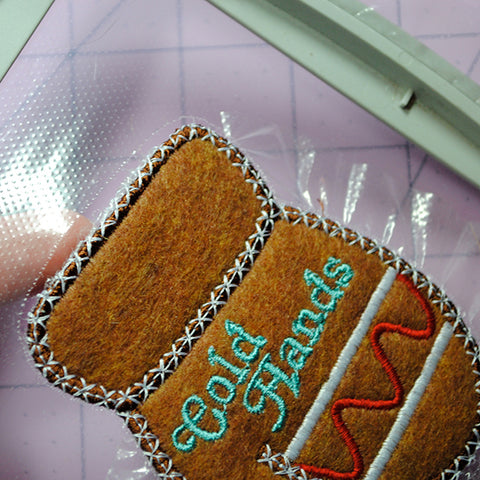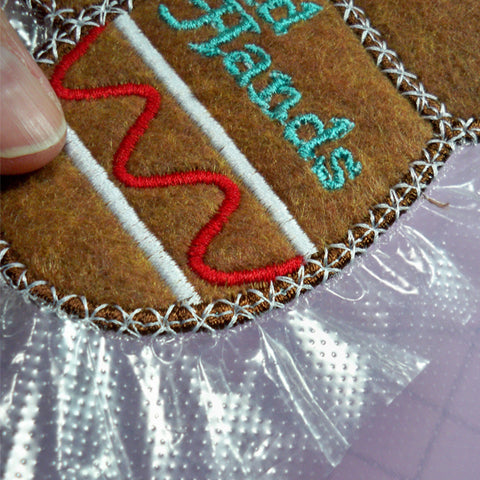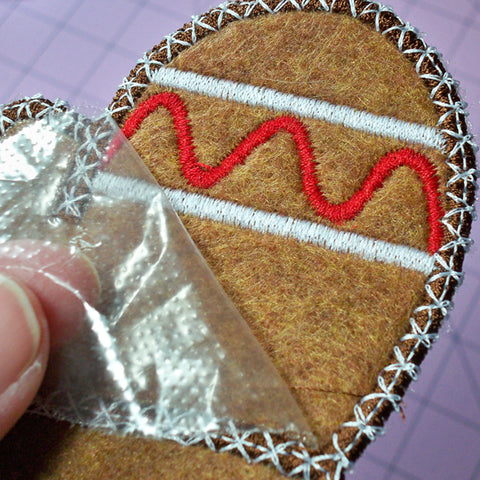
Heat-away may be one of the most under-utilized stabilizers in machine embroidery. Here are just some of the reasons you may find it useful.
Heat-away stabilizers look a lot like food plastic wrap but are surprisingly strong. Most of the time, heat-away stabilizers would be used instead of wash-away on items that can’t be washed. They can also be used instead of a tear-away stabilizer when you don’t want any white fuzzies left behind.
Heat-aways are super easy to remove. Just tear away the excess and any remaining stabilizer can be eliminated with a hot, dry iron. The film melts into little balls that can be brushed away.
Film-type stabilizers like heat-away can also be used as toppers but are generally not recommended for fabrics with a deep nap as they can be hard to remove. However, in some instances (like towels), you may not want the topper to come out like what happens with a wash away. Heat away is perfect for those times you want the topper to be permanent behind your stitches. It washes and dries beautifully. The dryer doesn't get hot enough to melt it away. Some machine embroiderers even use heat-away stabilizers to create lace and cutwork.
Since it is clear and strong, heat-away can be used as a template for quilting and decorative stitching. You can pin it to your project, draw on the flat side, and stitch along the lines. I like to use heat-away for another purpose altogether.
If you’ve been reading this blog for very long, you’ve probably figured out that I am a fan of freestanding applique. The first time I actually tried this technique was when I discovered Bonnie’s adorable Christmas Cookies.
Machine applique designs like these with a nice satin-stitched edge are a perfect choice for freestanding applique projects. You can see the Cookies for Santa tutorial here and the Cold Hands, Warm Heart tutorial here.
Pro Tip: I like to reinforce the edges for some extra stability using heat-away scraps sprayed with a temporary spray adhesive.
Heat away film tears away cleanly from the stitched edges. If you use it as a topper, it peels away easily.
The other advantage of using a heat-away rather than a wash-away is that it does not change the hand of the item. Sometimes, wash-away stabilizers that are just cleaned up on the edges and not completely washed end up damp and buckle inside the applique.
I’ve tried a few brands of heat-away stabilizers and All Brands and Sulky are both great. One side is textured or a little bubbly and I think it stays more snug in the hoop. (Pro Tip: The bumpy side of the heat away stabilizer goes toward the fabric to be a little less slippery or hold a bit better. The smooth side is up for better stitches.)
How do you use heat-away stabilizers?
Debbie Henry
Sew Inspired by Bonnie





Debbie henry - November 04, 2023
Bonnie and I love it too, Jean!
Jean Bevington - November 01, 2023
I’ve used heat away too and love it! Actually I need some more. Thanks for the names of companies where I can order more😍